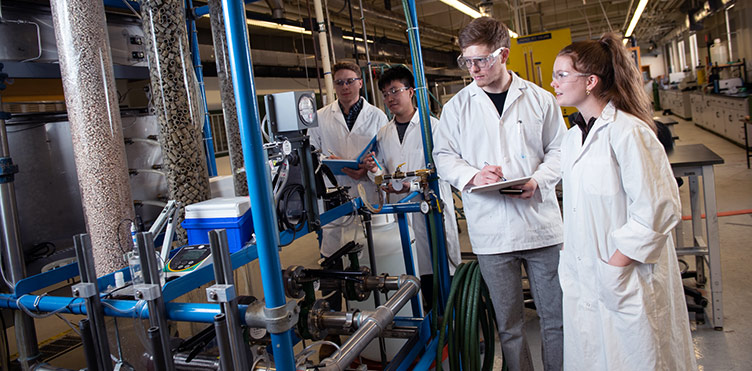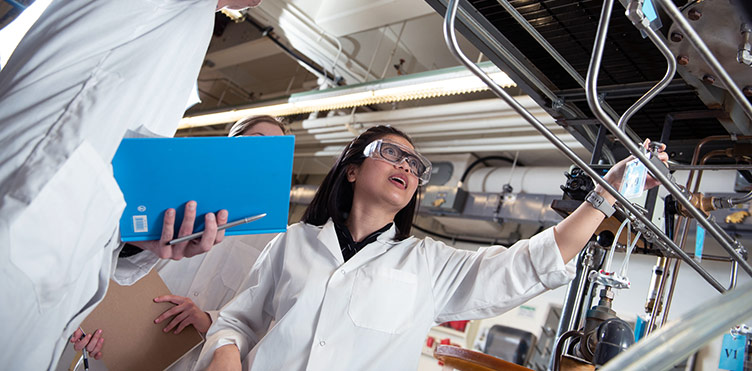Undergraduate program

Chemical engineers solve real-world problems, from developing and refining energy alternatives to creating new materials for industrial products we all depend on.
It's a career path with many options. These are some of the industries you can work in:
- aeronautics
- adhesives and coatings
- biotechnology
- chemical manufacturing
- consulting
- design and construction
- electronic device manufacturing
- energy and fuels
- environmental safety and health
- food
- government
- healthcare
- law
- medicine
- nuclear energy
- pharmaceuticals
- pulp and paper
- research and development
- new industries and fields limited only by your imagination
Not sure what your particular focus will be? Chemical engineering allows you to explore a world of possibilities. The faculty members are here to work with you. Follow the same path as our past students who have won national recognition for their work. Our co-op work terms also give you the opportunity to explore career options until you find the right fit.

Program specializations
Energy Conversion Engineering
Focus on environmental stewardship and study the conversion of energy resources into commodity products and services. Explore emerging technologies and societal issues in the energy and environment sectors. This is excellent preparation for a career in new types of energy production or in the transition to a decarbonized energy system.
Biomedical Engineering
Want to work in health sciences or medicine, a rapidly growing field? Concentrate on technology and how it interacts with human health and medicine to create new devices and equipment. Run computer simulations to test new drug therapies to improve the lives of many.
Nuclear Power Engineering
Nuclear energy is at the forefront of energy innovation. It is an essential part of the transition to a decarbonized energy system. Work in a large nuclear power plant or design and run Small Modular Reactors (SMR's).
We have one diploma program and a co-op program to enhance your engineering skills:
- Diploma in Technology Management and Entrepreneurship (TME)
- Co-op designation with work terms in the Co-op Program
Your future as a chemical engineer
Chemical engineers make our lives better. They have a major impact on society by shaping the world for tomorrow. They address social and environmental challenges in many ways. As a chemical engineer you might:
- help industry to meet their sustainability targets
- develop advanced nuclear technologies to generate electricity
- design and develop sustainable processes while minimizing their impact on the environment
- optimize chemical processes to reduce waste and increase efficiency
- develop technologies that reduce carbon emissions
- work in carbon capture and storage to pull carbon out of the air
- create and manufacture biofuels, biodegradable polymers and other green products
- ensure that industrial processes comply with environmental and safety regulations to protect the environment and people
The need for chemical engineers grows as we transition into a decarbonized economy with renewed emphasis on environmental and human health. Chemical engineers are vital for successfully facing the challenges ahead.


